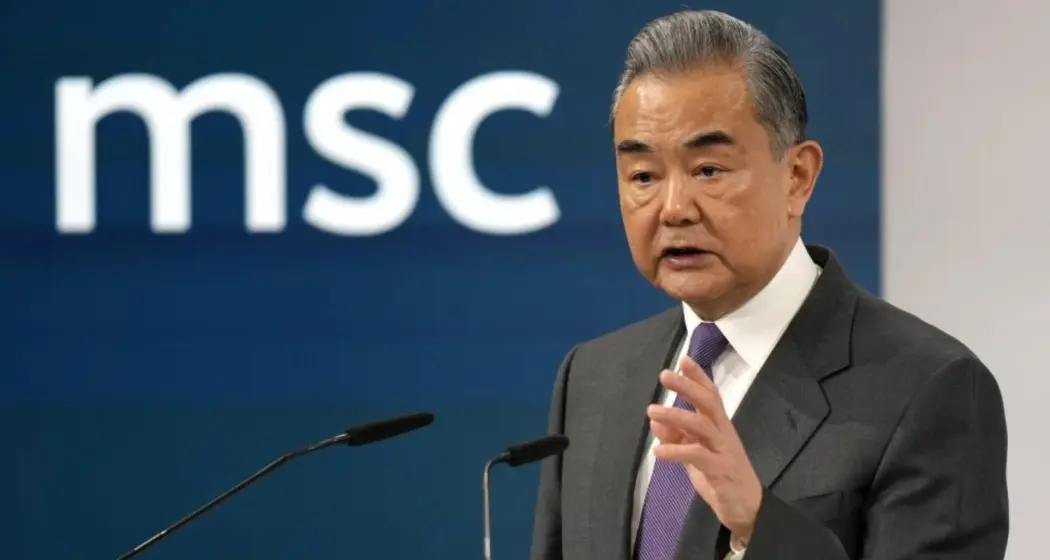China’s Foreign Minister Wang Yi has embarked on a whirlwind diplomatic tour, visiting the United Kingdom and Ireland, attending the 61st Munich Security Conference, chairing a UN Security Council high-level event, and participating in the G20 Foreign Ministers’ Meeting. This ambitious itinerary underscores China’s growing role on the global stage amid shifting international dynamics. Below, we explore the scope of these engagements, their key objectives, and the broader implications as reported during this period.
A Multifaceted Diplomatic Push
Wang Yi’s journey began in the United Kingdom, where he co-chaired the 10th China-UK Strategic Dialogue with Foreign Secretary David Lammy. The talks, reviving a forum dormant since 2018, aimed to deepen bilateral ties between the two UN Security Council permanent members, focusing on trade, climate cooperation, and global stability. From there, Wang traveled to Ireland, meeting Tánaiste Simon Harris to bolster the China-Ireland strategic partnership, a relationship marking nearly five decades of diplomatic growth.
Next, Wang attended the 61st Munich Security Conference in Germany, delivering a keynote address at a China-focused event. He outlined Beijing’s stance on fostering a multipolar world, emphasizing multilateralism over unilateral dominance—a pointed nod to tensions with the U.S. As China held the UN Security Council’s rotating presidency, Wang then chaired a high-level event in New York themed “Practicing Multilateralism, Reforming and Improving Global Governance,” pushing for a revitalized UN role. His tour concluded at the G20 Foreign Ministers’ Meeting in Johannesburg, South Africa, where he advocated for equitable global economic policies under South Africa’s presidency.
Driving China’s Global Vision
The visits reflect Beijing’s strategic priorities. In the UK, Wang capitalized on the Labour government’s outreach to mend ties strained under prior Conservative rule, building on Xi Jinping’s recent G20 summit meeting with Prime Minister Keir Starmer. In Ireland, the talks reinforced economic and cultural bonds, with China eyeing Dublin as a gateway to a stable China-Europe relationship. At Munich, Wang countered narratives of U.S.-led order, pitching China as a stabilizing force amid “transformations unseen in a century.”
The UN event showcased China’s bid to shape global governance, urging reforms to amplify the Global South’s voice—a theme echoed at the G20, where Wang backed South Africa’s focus on emerging economies’ debt and development. These moves align with China’s broader push via BRICS and its $1 trillion Belt and Road Initiative, positioning it as a counterweight to Western influence.
Regional and Global Reactions
Responses vary sharply. The UK welcomed the dialogue as a pragmatic reset, though Hong Kong and security concerns lingered. Ireland hailed mutual benefits, with trade topping $20 billion annually. At Munich, Wang’s multipolar pitch drew nods from developing nations but skepticism from NATO allies, wary of China’s Arctic and AI ambitions. The UN and G20 stages amplified Beijing’s clout, though U.S. Secretary of State Marco Rubio’s absence from the G20—protesting its “anti-American” tone—underscored transatlantic friction.
Russia and BRICS partners cheered China’s multilateral stance, while the EU, enforcing its AI Act, watched warily as Wang sidestepped tech rivalry critiques. Markets held steady—Brent oil at $74 per barrel—though tech stocks twitched amid U.S.-China AI jostling, spotlighted by DeepSeek’s R1 rise.
Stakes and Challenges
Wang’s tour flexes China’s diplomatic muscle but navigates choppy waters. The UK and Ireland visits test Beijing’s charm offensive against Western mistrust, fueled by Xinjiang and Taiwan. Munich and the UN amplify its global narrative, yet NATO’s Arctic buildup and U.S. chip bans signal pushback. The G20 role bolsters China’s Global South credentials—trade with Africa hit $282 billion last year—but risks overreach if allies like Russia falter in Ukraine or Syria.
Domestically, Wang’s messaging shores up Xi’s vision of China as a great power, though critics note censorship in R1’s rollout betrays multilateral ideals. Logistically, the grueling schedule—three continents in days—tests China’s diplomatic bandwidth, with every handshake and speech under a microscope.
Looking Ahead
Wang Yi’s whirlwind engagements cement China’s bid to lead in a multipolar era, from London’s boardrooms to Johannesburg’s summits. Success could lock in allies and sway global rules, but missteps—overreach in Syria’s chaos or a snub at the UN—could fuel rival blocs. For now, China strides boldly, its foreign minister a tireless envoy of ambition, threading a needle between cooperation and confrontation as the world watches a giant assert its place.
